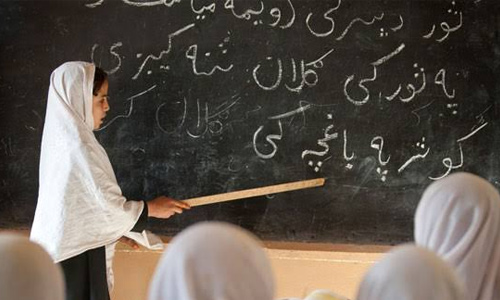In recent centuries many Mercantilist and Marxist scholars thought economy is the foundation of everything, but in modern era it is widely believed that education and human thinking power is the foundation of everything. There are many countries in the region that have a lot of economic resources, but still considered as under-developed and weak countries due to paying less attention on education. In fact, education is considered as infrastructure of all other infrastructures. Means, no real development will occur in any parts of human lives unless invest on education. Today the number of universities, quality educational centers and overall the level of science production in a country considered as determining variables in social and political development.
Education also enriches people’s understanding of themselves and world as well as enables to reach peace, prosperity and dignity. It raises people’s productivity, creativity and also promotes entrepreneurship and technological advances. Education has positive role in reduction of unemployment and ultimately reduction of social crimes. It is not surprising that a number of countries in the world have faced prison bankruptcy due to having a high level of educated and trained citizens. Owning to lack of prisoners, they started to destroy their jail buildings, instead, build schools, university and producing factories.
So, in order to decrease the number of jails, poverty crises and end cycle of social violence, we must give high priority to educational programs both in school and university level through national budget. Given that education for girls is not less important than boys we need to eliminate any barriers and tribal illusions keeping girls deprived of schooling. We must understand when we educate a girl, we educate a small community but when a boy educated just an individual is educated. Thus, we need to pay special attention to training, salary and recruitment of teachers. Teachers are social doctors; if we choose a wrong medical Doctor he may kill only one person, but if we choose a wrong social doctor such as teacher he may kill entire generation.
We need to change teaching from a reluctant job to a completive occupation. In Afghanistan, the university graduated talents are not willing to join schools either due to low salary or variety of corruptions. Here, it is worth to mention the experience of Japan as a developed country in the region. In Japan, millions of talents compete over teaching occupation because they pay 7500$ to a teacher in a month. In Afghanistan, less than a 100$ paid to teachers while less than 30% of teachers are legally qualified for coaching, meaning that they completed two years of educational training after high school. Furthermore, the numbers of female school instructors are just around 30 percent nationwide. Afghan girls face many obstacles when it comes to their education, including early marriage, conflicts and inaccessibility to nearby schools.
In recent days, a large number of teachers and students came to Kabul requesting government to upgrade their two years courses to four years. Given the shortage of teachers in the country and given the current standard, the government should give a positive response to them. In Afghanistan we have both quantitative and qualitative problems; for example, less than 50% of high school graduates secure acceptable points to enter universities. The shortage of instructors is so severe and so schools are employ teachers that have only passed secondary school.
Studies show that social and economic development does not occur automatically. Countries that are highly developed today have a long history of providing free or highly-subsidized education to the poor. A review of their history suggests that the initial motivation for this schooling had a religious basis, but that as the public’s level of education and income rose, their demand for schooling rose, and the financial support from private donors was replaced or greatly augmented with public funds. If poor countries wish to achieve high levels of national income, they need to provide public funding for the universal education of the poor, at least at the primary and secondary levels of schooling.
Though there are several variables involved in long conflicts of Afghanistan, lack of understanding and logical analysis of the phenomena is the root factors of most problems. To escape from this situation, there is no other way than to promote the intellectual level in all parts of the country. If we fail to provide fair and inclusive educational services to all children, we will not be able to rescue Afghanistan. If we fail to change the mentality of coming generation through convergent educational system, we should not expect to have a free and strong Afghanistan.
Bye and large, Afghanistan considered as one of the most exceptional countries in the world where many school-age children have no access to schooling or they have access to the lowest quality education. If we really want changes, we must put education at the top of national priorities. As it is the best way to reaching sustainable peace, stability and brotherhood. There are many models in the world to be adapted; for example, as in Japan we have to make education obligatory through national laws aiming to reach zero illiteracy level in the future. If we do not change our views towards education, trillions of dollars cannot change our country. We will always miss economic and political opportunities as we wasted in last 18 years. Thus, we will not be able to use the natural and geographical blessings we already have. The reason is that committed and expert human resources needed to control and manage the opportunities created.
Home » Opinion » Education is the most Powerful Weapon to Change Afghanistan
Education is the most Powerful Weapon to Change Afghanistan
| Mohammad Zahir Akbari

